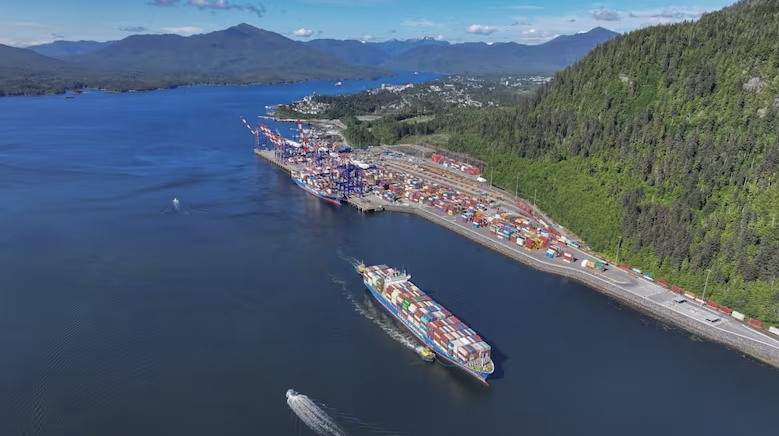Unions Slam Prince Rupert Port’s Plan to Test Self-Driving Trucks, Cite Job and Safety Risks
Subhadarshi Tripathy
5/30/20252 min read


The Port of Prince Rupert is preparing to test autonomous trucks this summer — a move unions say threatens jobs and raises serious safety concerns.
The plan, revealed in a presentation obtained by The Tyee and reviewed by CBC News, outlines a growing driver shortage by 2026 and a dramatic rise in cargo volumes due to upcoming expansion projects. The port projects truck movements will rise from 176 per day to over 1,300 by 2030.
The port authority says the technology is one of several options being explored to meet demand and insists that no self-driving trucks will be deployed operationally until the current driver pool is maxed out. Testing is expected to resume in June and July following earlier trials this year, which included 1,000 kilometres of autonomous driving.
But local unions say the tests are premature and could pave the way for job losses.
"We were angered and annoyed," said Teamsters Canada spokesperson Christopher Monette, who represents around 30 truck drivers at the port. "This isn’t innovation — it's mismanagement dressed up as modernization."
Monette said the union supports efficiency but believes current staff can help scale capacity by towing multiple containers per trip, rather than turning to automation.
Safety is another key concern. "This is a place with black ice and tough driving conditions," he said. "A safety driver in a test truck doesn’t guarantee future safety once automation expands."
Automation at ports has sparked heated labour disputes in the past — including a major 2023 strike involving 7,400 B.C. port workers, partly over automation concerns. Despite the technological hype, some studies suggest automated ports aren't necessarily more productive. A 2021 OECD report and a McKinsey survey both found automation can cut labour costs but often leads to lower overall productivity.
Prince Rupert's port is currently ranked 399th out of 405 global container terminals for efficiency, according to the World Bank, largely due to vessel wait times — a performance the port hopes to improve through expansion and modernization.
The autonomous pilot is being run with NuPort Robotics, an Ontario-based company. Their system includes a safety driver during all tests, and one vehicle has already reached 70 km/h on gravel roads during trial runs.
Still, union leaders are skeptical. Rob Ashton of the International Longshore and Warehouse Union Canada warned the move could be a slippery slope to further automation across the port, leaving workers in a remote city with few alternative job options.
“There's not a lot of other industry left here,” he said.
For now, the Port of Vancouver — Canada's largest — has confirmed it has no similar autonomous vehicle projects in development.
News
Stay updated with the latest BC news stories, subscribe to our newsletter today.
SUBSCRIBE
© 2025 Innovatory Labs Inc.. All rights reserved.
LINKS
